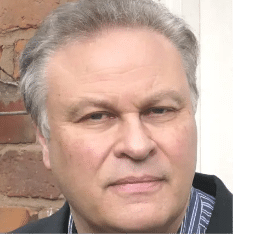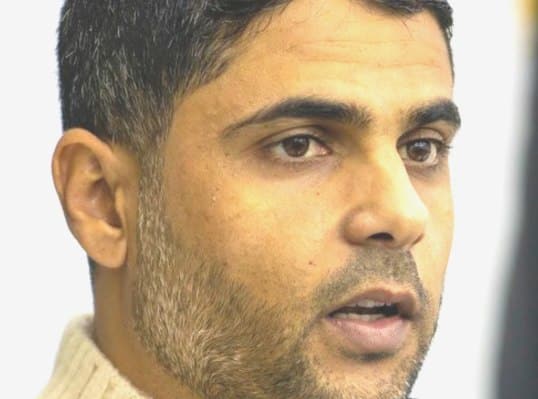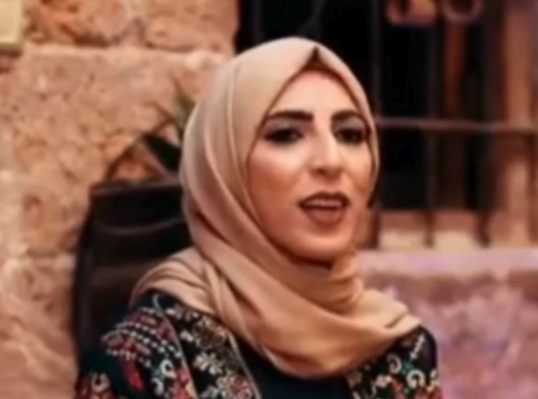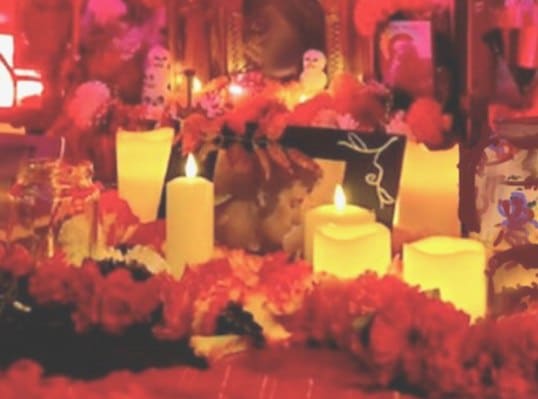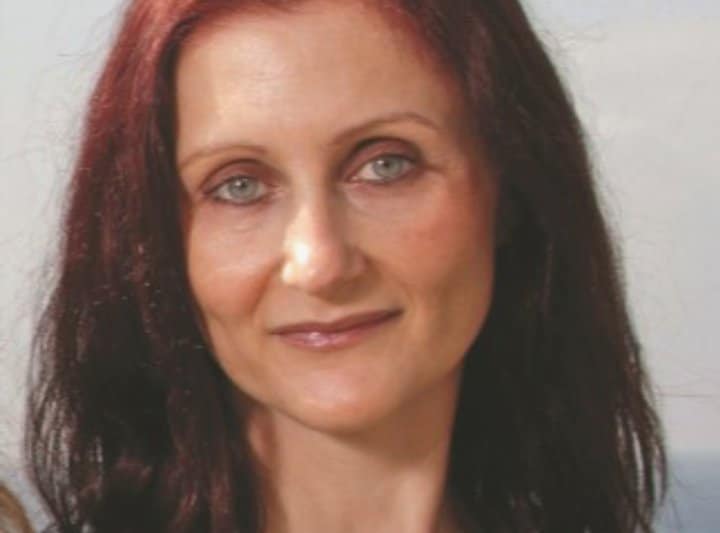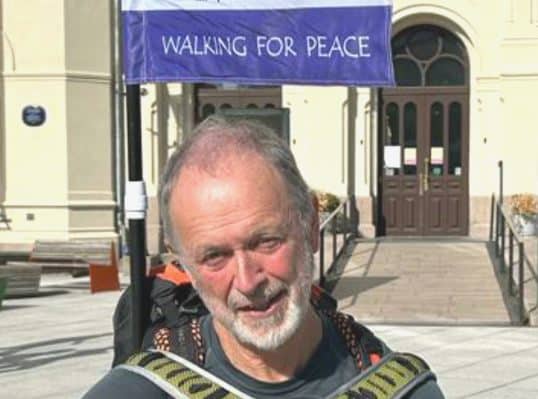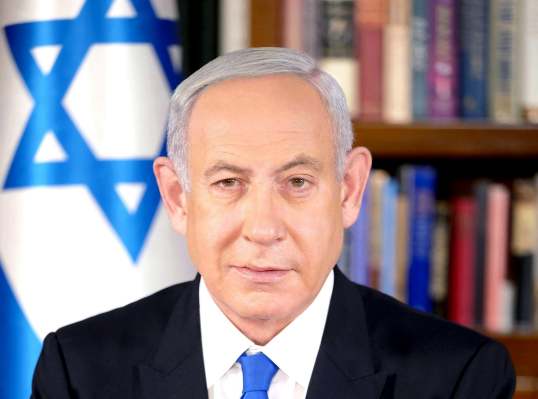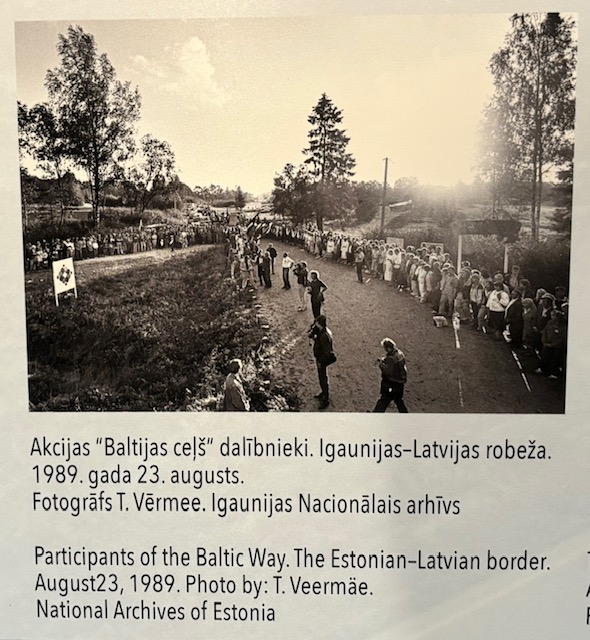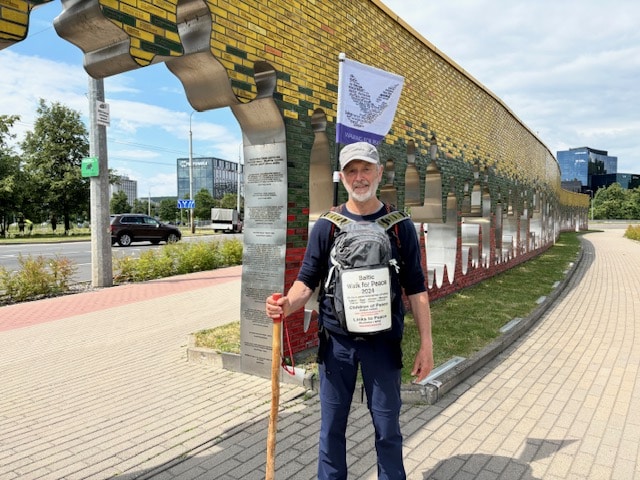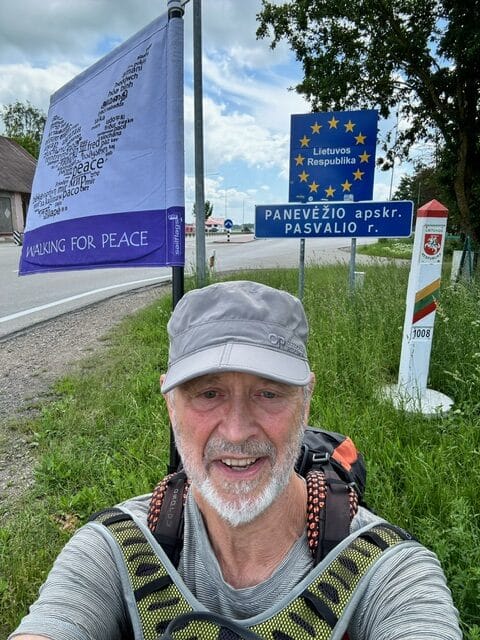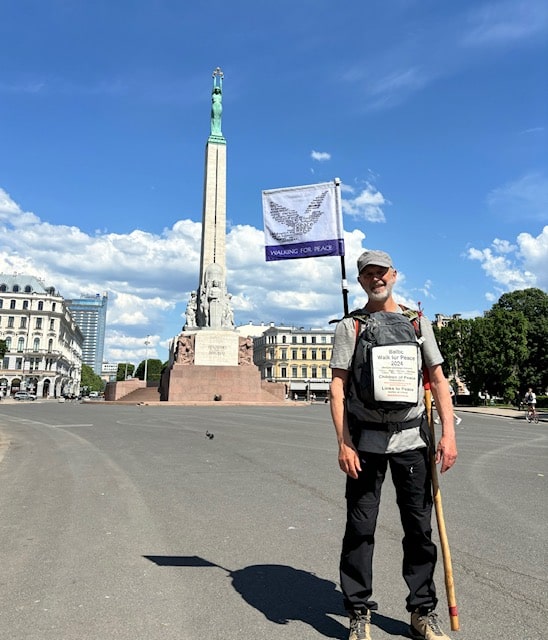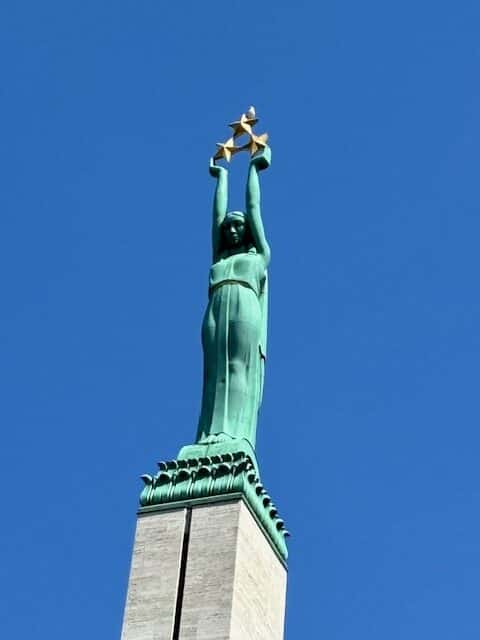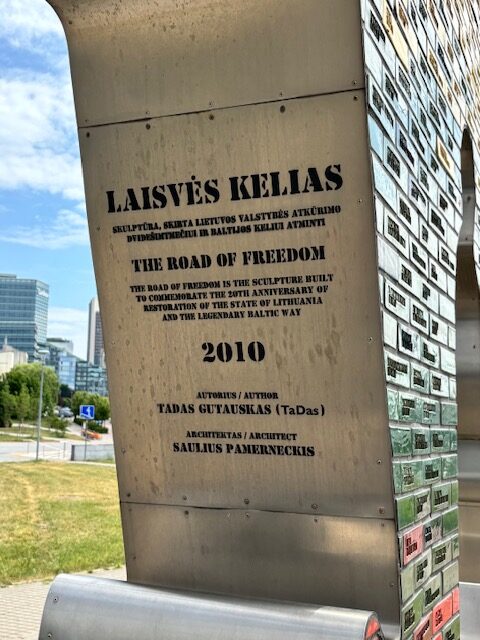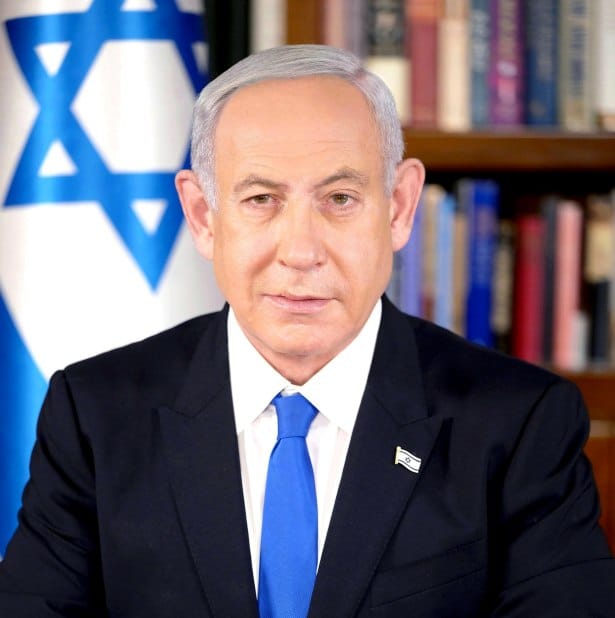PRESIDENT’S COMMENTS
“Blind hatred leads only to a world of greater darkness.”
As this cruel and bitter war between Israel and Hamas lingers on, the collateral damage is palpable. According to the UN Office for Humanitarian Affairs over 35,000 have died in Gaza, 52% women and children (May 2024).
At Children of Peace we mourn the tragic loss of our Gaza colleague Mohamed Farahat who died in an air raid on 12 June. The Trustees will honour this remarkable man. When peace returns we plan to institute a Scholarship Program in his name. May he rest in peace.
Against the background of this war has been the alarming rise of worldwide antisemitism, the largest increase of Judeophobia since the Holocaust. Whilst authorities shamefully stand by passively and watch this hate crime proliferate, we stand up against antisemitism, Islamophobia and all forms of racism and bigotry, as the largest peace network across the Middle East and North Africa.
It’s extraordinary how many people mistakenly believe that the Israeli-Palestinian conflict can end by directing hatred at one side or the other.
Richard Martin FRSA, President and Founder, Children of Peace.
DONATE NOW...
NEWS – JULY 2024
NEWS – JULY 2024
HONOURING MOHAMED FARAHAT – A LEGACY OF HOPE AND RESILIENCE AMIDST ADVERSITY
A tremendous loss. Mohamed was central to the success of our Gaza Nurses Training Program. Died 12 June 2024 in Gaza in an Israeli air-raid.

Mohamed was not just a mentor. He was a guide and a source of inspiration. His advice and support helped me navigate my studies and my career.
A student nurse.
His dedication and kindness were evident in everything he did. Mohamed always went the extra mile to ensure we had what we needed to succeed.
Another student.
Our Regional Liaison Dalia Al-Najjar remembers this wonderful man…
In early June 2024, we took a moment to remember Razan Al-Najjar, honouring her enduring legacy amid the ongoing war on Gaza. At Children of Peace, our commitment to preserving her memory is embodied in the Razan Al-Najjar Bursary, which supports the training of female nurses in Gaza. We select candidates who reflect Razan’s values. Inspiring, altruistic individuals dedicated to serving their community.
As we prepared for the new cohort of students and the bursary ceremony last October, an event designed to foster connections and provide guidance among current and former students, the war in Gaza erupted.
Mohamed Farahat, who led the bursary program in Gaza, was central to its success. Since 2018 we have helped to train 14 Gaza nurses.
His exceptional efforts in coordinating between universities and ensuring the program’s smooth operation were invaluable. Mohamed’s dedication was evident in every aspect of his work, from mentoring students to managing logistics. His ability to navigate complex challenges and build strong relationships was crucial to the bursary’s success.
Tragically, on 12 June, we received the devastating news that Mohamed Farahat had been killed in an Israeli raid on Gaza. His loss has left all of us at Children of Peace heartbroken and at a loss for words.
I had the honour of meeting Mohamed last July during my visit to Gaza. He was a compassionate and visionary individual, brimming with ideas to support Gaza’s nurses. We spent hours discussing ways to address critical issues and create impactful solutions. Mohamed was driven by hope and dedicated to his work, volunteering tirelessly. He was a devoted father to two beautiful children, a daughter aged six and a son aged five. His wife is expecting a baby boy who will be named after his father.
The impact of Mohamed’s mentorship was profound and deeply felt by the bursary students.
The outpouring of grief on social media, dozens of posts and tens of comments, reflects the deep respect and affection people had for Mohamed. He was a friend and colleague who consistently went above and beyond, always ready to assist anyone in need.
According to the Ministry of Health in Gaza, at least 493 healthcare workers, including nurses, paramedics, doctors, and other medical personnel, have been killed since October 7, 2023. Many more have been injured. Mohamed, who held a Master’s in Business Administration from The Islamic University of Gaza and a Bachelor’s of Science in Nursing from Palestine College of Nursing, is a tragic part of this statistic.
Mohamed Farahat’s untimely death is a profound loss to all who knew him and a stark reminder of the harsh realities faced by those working to make a difference in Gaza. His unwavering dedication to the Razan Al-Najjar Bursary exemplify the spirit of resilience and hope that we strive to embody.
In honour of Mohamed’s legacy, we remain steadfast in our commitment to continuing the work he so passionately championed. The Razan Al-Najjar Bursary will persist in its mission to support and empower female nurses in Gaza. As the war eventually subsides and the education system is able to function again, we will be guided by Mohamed’s tireless efforts and compassionate mentorship.
As we move forward, we hold onto the hope that Mohamed’s vision for a better future will continue to inspire others. His memory will endure through the lives he touched and the positive change he helped to foster.
We extend our deepest condolences to his family. Our hearts are with them and our commitment to supporting the healthcare community in Gaza remains unwavering. In the face of such adversity, we will strive to keep Mohamed’s spirit alive and continue the vital work of building a brighter future for all.
Voice from Israel, THE DAY AFTER
Children of Peace is proud of our commitment to challenging bigotry, racism and prejudice. As a conflict resolution NGO we are alarmed at the sinister rise of worldwide antisemitism.
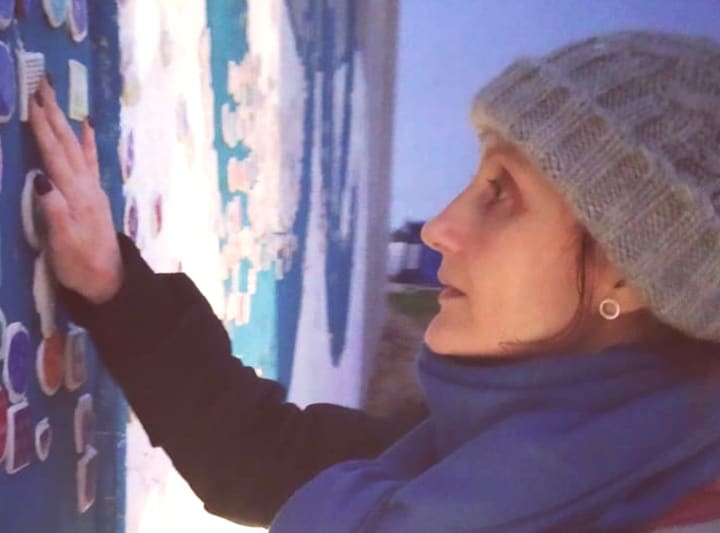
Conversations about the Day after. Important conversations that we need to have.
Our Israeli correspondent Rolene Marks reports on troubling developments.
“Hamas are going to finish what Hitler started.” “You filthy Zionist, paedophile loving, money hungry bitch”. “The end of Zionism and Israel is coming.” “You f***ing Zio-Nazi”. These are just messages that I have received. I have also received threats of rape.
For decades, we have heard the stories from our grandparents and great-grandparents about how they had to flee for their lives to escape pogroms, persecution and the calamitous genocide that was the Holocaust. We all know that these horrific events never start with gas chambers or mass killing, but with words.
Antisemitism takes on a new iteration in every generation. At the Passover Seder, we sing, “in every generation they rise up to destroy us but the Holy one, blessed is he, saves us”. For years, we have been ringing the alarm that anti-Zionism is the new antisemitism. Zionism simply put is the return of the Jewish people to their ancestral homeland, or in modern parlance, recognizing the right of the State of Israel to exist. Israel is the only country whose mere existence is called into question and threatened. Criticism of policies you may disagree with is democratic. Saying that the Jewish state has no right to exist crosses the line into antisemitism.
If there was ever doubt that anti-Zionism is antisemitism, all we have had to do is look at global reaction to the atrocities committed by Hamas on 7 October and Israel’s response.
The last nine months, since the worst attack on Jews since the Holocaust, there has been an explosion of antisemitism around the world. Before Israel had even responded to the atrocities, the streets were full of protesters chanting for the end of Israel and other horrific epithets. Social media has been a cesspit of hatred across platforms and many of us have lost friends. The antisemitism that so many of us having been raising the alarm about for decades has come to the surface, with devastating consequences. Jews around the world are frightened.
Some examples…
- Chants of “gas the Jews” outside the Sydney Opera House in Australia.
- University encampments on campuses around the world where Jewish students and faculty members have been threatened and even prevented from entering campus.
- Appalling denial of the 7 October atrocities, and yet at the same time chants of support for the massacres, including rape.
- In Brooklyn, another family shouting “Free Palestine” and “Death to Israel” assaulted a Jewish family at their twin sons’ fifth grade graduation.
- A 12-year-old Jewish girl was raped and threatened with murder in Paris by three underage boys, including an ex-boyfriend enraged that she had concealed her Jewishness from him. President Macron condemned “the scourge of antisemitism”.
- In Greece, a mob tried to enter a hotel “searching for Jews”.
- Signs on stores in Turkey saying “Jews not welcome”.
- In Amsterdam, the words ‘No Zionists Allowed’ were spray-painted on the sidewalk outside a home that had belonged to a Jewish family deported during the Holocaust.
- In Dagestan, southern Russia, assailants opened fire at synagogues in two separate cities simultaneously and then burned one of them to the ground.
- In Paris and Berlin, Jewish homes spray-painted with Stars of David or red triangles, which is the sign to denote a Jewish or Israeli target.
- Jews refused service at Airbnb in Italy.
- Synagogues firebombed in Montreal, Canada.
- A Jewish family told, “I serve cats and dogs but not Jews”. Café owner tells family on holiday in Vietnam, that he supports Palestine.
It is terrifying. There are many important questions and conversations happening about what will happen in Gaza ‘the day after’. I think that important conversations need to be had about what the day after will be for Jews.
- Whom can we trust?
- Who are our allies?
- Can we take our children to school or book a vacation without fear?
The hate genie is out of the bottle and while many world leaders and officials have condemned antisemitism, there seems to be little or no action against the perpetrators.
For Jews, we have seen this before. We know how it ends. Our hope is that now we have a nation state – Israel.
Rebuilding Lives
The violence against Israelis and Palestinians hurts children in both communities – with an increase in post-traumatic stress, morbidity, nightmares. Children of Peace carries out urgent work with our partners – protecting and supporting children. Please support our work and help the #childrenofconflict.
Photo credit: Lyle Hastie - Unsplash
Children of Peace Goodwill Ambassador Paul Haines and his 2024 Baltic Walk for Peace
I have been Walking for Peace from Tallinn, to Riga, then Vilnius, a distance of 422 miles.
There is a JustGiving page for this walk. I’m almost at my target of £3,000 raised for Children of Peace.
This followed my previous Walks for Peace supporting the charity Children of Peace. In 2015 I walked from Rome to Jerusalem, 2015peacewalk.wordpress.com
In 2019 I walked from London to Hamburg (via Brussels and Amsterdam), and in 2023 from Hamburg to Helsinki (via Copenhagen, Oslo and Stockholm).
As before I was wearing signs with information about my walk and a ‘peace flag’. I also carried one of my books in which I asked people to write their Message of Peace. I engaged with as many people as I could to help raise the profile and awareness of peace in this world. As previously, I spent time in the cities I visit researching for my site, linkstopeace.org
The map here shows my progress, I sent reports every few days…
Struggling in the Dark. The Plight of the Disabled Amidst The War on Gaza.

Editor’s Note
This powerful story highlights the profound struggles experienced by people with disabilities in conflict zones.
It vividly illustrates how the loss of essential assistive technology, such as a phone, exacerbates their daily challenges. And underscores the resilience required to navigate such hardships.
This report comes from leading Gazan journalist, TV presenter, activist Sara al-Najjar.
I was born with partial vision, and it gradually deteriorated over time. However, I grew accustomed to it and never resisted being one of those with visual impairments. Instead, I tackled every challenge and became an inspiration to others. I helped hundreds of people with disabilities, both men and women, break free from their fears and walk proudly in society, clinging to their dreams.
Living in Gaza presented significant obstacles due to the lack of accessibility, uneven streets, crowded sidewalks cluttered with vendors, and a severe shortage of assistive tools. To navigate these challenges, I memorised routes and used mental markers. My phone became a lifeline, enabling me to capture and enlarge images to avoid obstacles like power poles and trees. This was crucial not only for daily navigation but also for my academic and professional life.
Over the past eight years, I have worked in media and human rights training, volunteered with children, youth, and people with disabilities, and created content on Instagram under the title “Minister of Positivity.” Throughout all this, people never saw me as someone with a disability needing pity or assistance.
During my MBA studies, my phone played an essential role. I used its camera to photograph textbooks and lecture notes, enlarging them for easier reading. It also facilitated writing, allowing me to magnify and edit documents accurately. This functionality was vital for creating presentations and drafting reports, helping me manage both my studies and professional responsibilities.
The outbreak of war, however, disrupted my life in unimaginable ways. Our neighbourhood was bombed, leaving us surrounded by rubble, and I could no longer navigate alone. I rarely left my room until we were besieged by the army and eventually forced to evacuate. The loss of my phone (seized by the army) was like losing my eyes. I relied heavily on my younger brother Adam, who is nine years old, to be my eyes and hold my hand, despite his own injured hand.
For months, I was without this crucial tool, struggling to adapt to the absence of the device that had been central to my daily life and work. Eventually, my father managed to retrieve an old phone from beneath the rubble. However, using it was fraught with difficulties. With electricity in Gaza severely limited, I had to travel to a designated charging station, a risky journey fraught with obstacles and danger. But having a phone again was hopeful, and I wrote a novel on the phone, sending every part I wrote to a close friend in the West Bank via text message for safekeeping.
Last week, while charging the old phone with a car battery, it exploded. This disaster not only destroyed the temporary phone but also symbolised the profound sense of helplessness and loss I felt. Writing and editing my novel had been a distraction from the misery we were living through, and now that purpose was lost.
Finding a new phone has proven nearly impossible. The few available are extraordinarily expensive, with even a basic Android phone costing over $1,000, far beyond anyone’s reach. The lack of accessibility and the ongoing devastation have left me unable to work, compounding the challenges I face.
I am now left with a deep sense of shame and frustration, feeling isolated from the many people with disabilities who have come to know my resilience and strength.
- I wonder if I will ever be able to return to my positivity, activity, and media work?
- Will my sight ever be restored?
- Will the war come to an end?
- And will I ever be able to replace the eyes that were taken from me?

OUR COALITION OF PEACE
… is a unique peace network with affiliates on every continent, and especially in Gaza, Israel, Jordan, the West Bank, Turkey, Egypt and Morocco.

INVITATION TO REMEMBER THE PEOPLE WE HAVE LOST

Artists of Hackney are creating a giant public shrine and dedicating a space to Children of Peace at their ‘Light of Hope’ arts trail as part of a five-day event this Autumn.
Abney Park is a diverse, ancient cemetery set in acres of beautiful woodland and this October will host ‘Altar’ – a trail of shrines and light art, open to all.
By sharing stories of people we have lost, Altar asks us to celebrate our similarities not our differences. The life experiences that connect us all regardless of age or faith.
If you have someone you’d like to remember or wish to gift a donation or provide sponsorship to help fund the project please contact…
Elizabeth Melinek at info@elizabethmelinek.co.uk
Elizabeth Melinek is a film set designer, visual artist and campaigner with 25 years of experience creating environments that enable authentic connections and creativity.
She plans in the autumn, to organize an arts trail in Hackney, London. And will dedicate a space to Children of Peace. Please support this project.
FOOTNOTES
In her latest news update, Professor Sarah Brown reviews key events in the region.
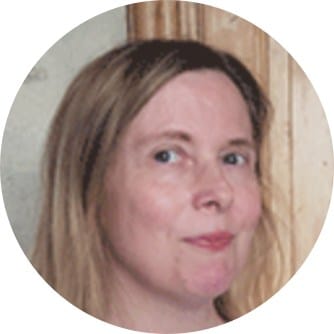
Possible ceasefire deal inches closer
Strenuous efforts are being made to broker a new US-backed ceasefire deal. Key to hopes for a breakthrough is the fact that Hamas have dropped the demand for a definitive conclusion to the war before ceasing hostilities.
The threat of all-out war between Israel and Hezbollah is intensifying the drive to find a solution to the conflict. Hezbollah has confirmed it will abide by the deal, if it is passed, and stop firing missiles into northern Israel.
The proposed deal would involve the phased release of hostages. It would begin with the elderly and vulnerable, and an Israeli withdrawal from Gaza as well as the release of Palestinian detainees. Israel’s own conditions include the requirement that there must be an end to weapons smuggling via the Gaza/Egypt border.

The impact of Gaza on the UK elections
Back in 2019 a significant number of British Jews turned away from Labour due to their concerns over Jeremy Corbyn’s leadership, and his failure to deal with accusations of antisemitism. Sir Keir Starmer acted decisively to reverse this trend. With the result that in Barnet, a borough of London with many Jewish residents, three seats were won by Labour for the first time on 4 July.
However, while Jewish voters are feeling renewed confidence in Labour, many British Muslims are frustrated by the Party’s stance on Gaza. Of particular concern was Keir Starmer’s apparent suggestion that Israel had the right to withhold power and water from Gaza. He later claimed this position had been misunderstood. Independent candidates, standing on a pro-Palestinian platform, gained victories in Birmingham and other areas with large Muslim populations.
In Leicester South the Shadow Paymaster General, Jon Ashworth, was defeated by Shockat Adam. Some Labour MPs and campaigners, including Jess Phillips, the MP for Birmingham Yardley, have complained that they were intimidated and abused by some campaigning for the independent candidates.
Reformist candidate’s victory in Iran
The surprise success of Masoud Pezeshkian, the newly elected President of Iran, is likely to have an impact outside the country’s borders. Pezeshkian defeated hardliner Saeed Jalili by 16.3m to 13.5m votes. Pezeshkian is keen to lift restrictions on Iranian citizens. Most notably, he supports a relaxation of the strict laws governing women’s dress.
He also wishes to improve relations with the West and thus release Iran’s economy from the grip of sanctions. The new President’s powers will, however, be limited. Ayatollah Ali Khamenei remains the country’s supreme leader, and the influence of the Revolutionary Guards is also significant. It also seems unlikely that the new President will bring about any thaw in tensions between Israel and Iran.
During his campaign Pezeshkian expressed a hope to improve relations with all countries “except for Israel”. And he has since confirmed Iran’s support for resistance against the “illegitimate Zionist regime”.
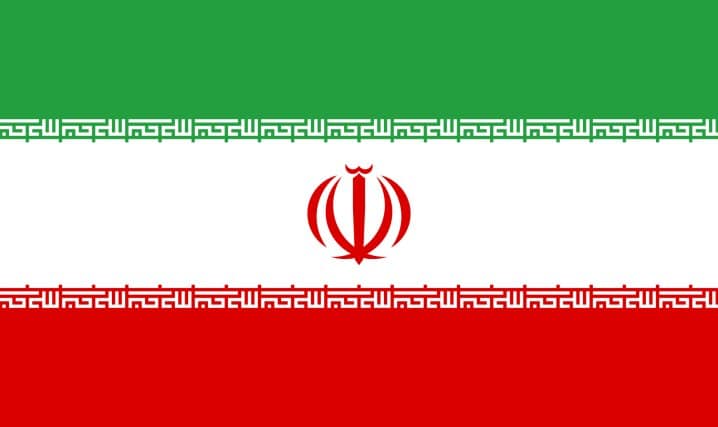
Photo credits.
Thanks to Unsplash photographers: Emad el Byed, Levi Meir Clancy, Rui Chamberlain.
Other images were supplied by the subjects.




